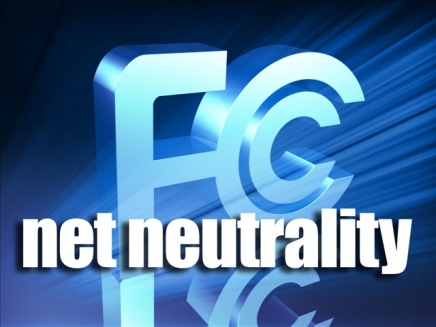This post was written by Judith L. Harris.
Last week, the U.S. Court of Appeals for the D.C. Circuit handed down a unanimous decision in the case of Comcast v. the FCC, holding, in effect, that the Federal Communications Commission (“FCC”) could not use its ancillary jurisdiction under Title I of the Communications Act to exercise broad oversight over the activities of Internet service providers (“ISPs”). The case involved a 2008 decision under prior FCC Chairman Kevin Martin, seeking to enforce 2005 “net neutrality” principles by banning Comcast’s blocking or slowing of traffic from broadband subscribers using BitTorrent, an online peer-to-peer file-sharing technology. You can download and/or read the entire case here Comcast v. FCC.
At first blush, the ruling appears to be a total victory for Comcast but,as no one knows better than Comcast itself, nothing in the Nation’s capital is ever that cut and dried. Thus, Comcast was wise to respond in a conciliatory fashion: “We are gratified by the court’s decision today to vacate the previous FCC order. Comcast remains committed to the FCC’s existing open internet principles, and we will continue to work constructively with this FCC as it determines how best to increase broadband adoption and preserve an open and vibrant internet.” .
After all, Comcast is awaiting the FCC’s judgment on Comcast’s $30 billion merger with NBC Universal. The Commission (along with the Department of Justice) has the power to sideline the deal altogether or to impose conditions that, depending on their severity, could place significant constraints on the business plan of the wanna-be merger partners. Stated another way: Comcast knows that its time for customer golf. Moreover, and possibly even more significant, the only options now available to a highly motivated FCC appear to be far more draconian to the ISP community than the relatively innocuous exercise of power that Comcast successfully challenged in court. The old adage “be careful what you wish for” comes to mind.
Not that any of this leaves the FCC smiling. From their perspective, the court’s ruling could cast a long shadow over the FCC’s ability to proceed with its pending rulemaking designed to codify even bolder net neutrality policies across all broadband platforms, including wireless. Moreover, the issue of the reach of the FCC’s jurisdiction over Internet services could constrain the FCC’s ability to deliver on President Obama’s promise of universal broadband access at high speeds and reasonable prices, and the FCC’s marquee project: implementation of the National Broadband Plan. That plan was released to Congress by the Agency just a few weeks ago (March 16), amid much fanfare and after a year’s worth of intensive effort involving no less than 36 public workshops, nine field hearings, and 31 public notices that produced 75,000 pages of public comment!
But, soldiers march forward. Only two days after the court’s decision, the FCC announced its “Broadband Action Agenda,” explaining the purpose and timing of more than 60 rulemakings and other proceedings recommended for action by the FCC in the plan, and quoting FCC Chairman Julius Genachowski defiantly proclaiming: “We are putting the National Broadband Plan into action,” immediately adding, “The court decision earlier this week does not change our broadband policy goals, or the ultimate authority of the FCC to act to achieve those goals.” Well, maybe not.
The ISPs will undoubtedly act with all deliberate speed to nail down the Comcast victory by vigorously lobbying Capitol Hill to oppose any effort by the FCC (and potentially other providers such as Google and Amazon.com, and tech companies such as Apple), to entreat Congress to mandate network neutrality or to enact legislation giving the FCC clear authority to regulate broadband. From the ISP perspective, even worse could be an effort by the FCC to unilaterally reclassify broadband transmission as a Title II telecommunications service, empowering the FCC (at least until the next court challenge) to regulate with impunity. This latter action, often referred to around town as the “nuclear option,” would only require an affirmative vote by three of the five Commissioners, a low hurdle given the unrestrained, unambivalent public reactions of all three of the Democratic Commissioners (including the Chairman) in the immediate aftermath of the court’s pronouncement.
This week (on April 14), Chairman Genachowski is scheduled to be the only witness at a hearing before the Senate Commerce Committee. That hearing was originally planned to focus exclusively on the National Broadband Plan. But now, in addition to examining the FCC’s substantive proposals, the hearing will likely focus on its power, in light of the Comcast decision, to move forward with its implementation plans. With lobbyists swarming the halls of power, expect fireworks. Hopefully, all-out war won’t be the only avenue considered. The public and private stakeholders would do well to take a deep breath and earnestly consider an immediate, good-faith attempt at serious industry self-regulation, with agreed-upon standards of conduct and meaningful enforcement mechanisms.
Time’s a-wasting. As the FCC moves to implement the administration’s broadband agenda, over at the Federal Trade Commission, net neutrality and open Internet advocates are undoubtedly pondering how best they can use their own powers to protect consumers from potentially abusive trade practices by vertically integrated ISPs with enormous market power in a world where the FCC might, in the end, have limited enforcement tools. Who knows, the FTC and the Antitrust Division might decide that its time to burnish tried and true antitrust laws as a way of curtailing any anti-competitive conduct. Comcast, to be sure, is ahead at half time but, as they well know, there is still much more of the game to be played.
Whether you want to stay in touch and in tune with developments, you wonder how “net neutrality” and these skirmishes might affect your business; or if you need legal advice and representation, you need look no farther than our very own Judith L. Harris – she’s the authority, and she graciously contributed this timely and insightful post. Of course, you can always call me, Joseph I. Rosenbaum, or any Rimon attorney with whom you regularly work.






